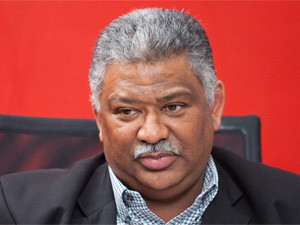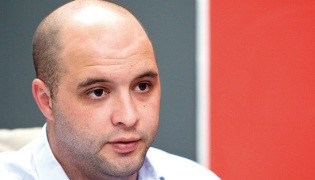
Speak to many knowledge workers under 30 and you won't find too many fans of traditional ERP. It's slow, painful and boring ? nothing like the latest pay-as-you-go cloud applications they're all used to. But ERP isn't going away any time soon. It runs too many global businesses, for one, including some of the poster children of the new economy. According to Magic Software MD Hedley Hurwitz, what will change is the way it's purchased and rolled out.
"From a core systems perspective, we're a long way from abandoning traditional ERP," says Hurwitz. "But the commercial model will change dramatically: there will be more emphasis on cost benefit, value for money and closer tracking of milestones. Traditionally, an ERP customer has taken a huge risk upfront after one too many conversations on the golf course, and then attempted to get value out of it over the next two years. Auxiliary systems are where ERP will lose its grip ? the CRMs and the things that are not core. GLs and stock management are a long way from moving to the cloud. It's very tempting to consume Web services that cost $100 per month without messing with your core systems."
Keith Fenner, senior VP of Sage Africa, agrees.
"You're not going to touch an SAP general ledger or stock system because it's rock-solid. But there are definitely features that vendors are going to optimise for their customers by putting them into the cloud."
Gavin Kilfoil, sales director at Infor, says cloud is real, whether vendors like it or not.
"It's a journey for all of our customers, although it will be a different one for each of them. The issue we face is that the CFOs are my age and they don't want to let the core out of their hands. They've controlled them all their lives and won't want to let them go. But the peripheral systems will move to the cloud very quickly. I don't think the issue is the pricing. The issue for all of us is that the revenue stream we're getting from those models will deteriorate rapidly."
Reg Barry, executive: projects at UCS Solutions, doesn't think that in all cases, ERP users will move to the cloud.
"Certainly the larger companies want to invest in a system that will be with them for the next 10 to 15 years. Smaller companies may well be attracted to bespoke solutions, but the reality is that a big company has certain key business processes they would like to protect, and they will stick to a core solution based on best practices. The true strength of ERP is in the integration. There are many best-of-breed systems out there, but the biggest cost is in integrating them all."
Alvin Paules, chief technology architect, SAP Africa, says integration will be the key factor that keeps core ERP closer rather than further out.

"ERP is still core and you can run it on-premise or on-demand in the cloud. There is a shift towards point-based cloud-type applications, and most ERP vendors are moving towards offering those on top of their silos, but the problem is the end-to-end processing integration gets more complex the more you put things in the cloud."
Mobility questions
The mobility explosion is something ERP vendors are scrambling to address. Magic Software's Hurwitz says the push is coming from business.
"Mobility is a challenge. There's an urgency to get applications out to the different mobile devices, and the businesses are way ahead of core ERP providers. They want to go bespoke because they want an app and want to get something out there immediately."
Mohammed Cassoojee, director of sales and operations for EOH's SAP services division, says mobility and hybrid go hand-in-hand.

"We're noticing existing customers favour a hybrid architecture. Their core systems are in place and the ERP vendors are doing good things, extending that and going up the value chain to do functions like analytics using transactional information. Our customers are saying ERP is stable, but they don't want to invest in the technologies they need for mobility. They want us to host a mobile platform for them."
SAP's Paules says there are tools that enable ERP users to develop once and run on multiple platforms.
"HTML5 also has a lot of device independence. But how do you manage the device itself? Sometimes it makes sense to have some data on the device, so that part of the data is online and part of it is offline.
"One of the most advanced things I've seen takes business process management and puts rules alongside it. If the users access workflow approval from a mobile device, then it doesn't throw the whole screen up. It also limits the presentation on a mobile device so there's just an amount with a control to approve it or not."
He also says there's no problem with core ERP systems sitting on top of cloud infrastructure.
"I've seen Amazon configure and provision a 600-user ERP system, plus CRM, plus integration layer as well as the business warehouse and reporting ? in just 30 minutes. An ERP layer needs to be able to sit on top of that to gain the advantages of cloud."
Sage's Fenner says simplicity for the end-user will be very important.

"What's simple should be simple and what's complex should be possible. In the mid-market, an ERP user doesn't care whether something is HTML5 or native. They have business processes they're trying to invoke, with governance and compliance procedures that must be followed and they're sitting in South Africa, Nigeria or Kenya ? they just want to transact. For me, the users want simplicity in ERP."
Dylan Behrmann, regional sales manager at Software AG, agrees.
"For a lot of companies, it has to do with governance, and it's horses for courses there: financial companies will have something completely different from manufacturers. Businesses are requiring a lot more adaptability, especially considering that many companies within southern Africa are playing on the global scale. Where are the users and what information do they need? And the UI has to be simple, otherwise it won't be used. The function underneath may be complex, but the presentation must be simple."
A changing model?
Mobility and cloud are certainly encroaching on some ERP functionality. Will their billing models also force changes on how the vendors price their products? EOH's Cassoojee says it's not there yet.
"Can you pay per use on ERP? I think it's a little immature at the moment and none of the vendors have a licence structure in place to cope with that. But it will get there eventually."
SAP's Paules says the way vendors will have to get there is through acquisition.
"Pay-as-you-go billing is more of a licence transition issue for vendors, and the best way to do it is through acquisition. Specialist vendors targeting niche markets have sorted out their billing and I don't see any other way to do it. If you start to mess with your current business model, you're going to run a huge risk."
You're not going to touch a general ledger if it's rock-solid.
But, even as vendors grapple with how to charge for their solutions, customers are embracing ERP as never before. Sage's Fenner says Sage's market is doing well.
"The mid-market is expanding, certainly. The tough thing for us is that it has the same expectation as SAP. Our customers expect us to deliver everything, including mobile apps. They don't want it from anywhere else; they want it from Sage because they see less risk. And that's a huge investment that you, as a big company, should make. The other thing is that the larger ERP systems are looking to connect more with others. And that comes back to architecture. If the architecture is there, then you can do it."
People want new functionality without having to go through an upgrade.
EOH's Cassoojee says there are many large organisations out there that are doing large integration exercises for the first time.
"The challenge they're having is that the buying centres have changed ? business is deciding what to buy instead of IT," he says. "Unless you have strong governance within the organisation, you're going to find IT driving a long-term strategy of buying ERP and the business putting in the sales force."
Stuart Scanlon, sales director at New Era Solutions, has also seen growth, but with a different focus.
"We've seen companies moving away from the best-of-breed approach because it was always messy ? companies never spent enough time putting in a good integration layer. If your ERP system doesn't have that kind of layer built in today, then they will throw you out. Customers want to consume ERP and eat it bite by bite. They want to take a couple of modules and slowly evolve the business as they go along. Instead of R10 million upfront, they'll spend R2 million and learn as they go."
SAP's Paules says he's seen unprecedented growth.
"The first half of this year has been the most radical I've ever seen in all of my years at SAP. I think our partners can vouch for that as well. A couple of things are happening: the first is customers are looking for integration within the stack that simplifies their lives. The second is that there's a bit more focus on the industry solution side. If I am in power generation, there are things that are unique to me and I need them to sit directly on top of ERP. And the third thing is the rapid deployment approach that I think is going to change the way partners go to market. People want ERP to be stable, but they want a way to get new functionality without having to go through a whole new upgrade."
USC's Barry says ERP itself won't change much, but how it will get rolled out will.
"Your core ERP solution has to be there and it does cost money. Companies need to accept that there are other companies out there that have been doing this and doing it well, so why not leverage the best practice that's out there? Is ERP going to change? No. I think the core will still be there, but the way it's going to be rolled out will change."
And what sort of new features do customers want? Infor's Kilfoil says they're ones borrowed from the Web.
"We're finding that what we need to provide in new versions are Twitter-like events and Google-like searches. Proof of payment is a good example ? you should get a notification when a payment happens. Those are the little things that customers want."
* Article first published on brainstorm.itweb.co.za
Share